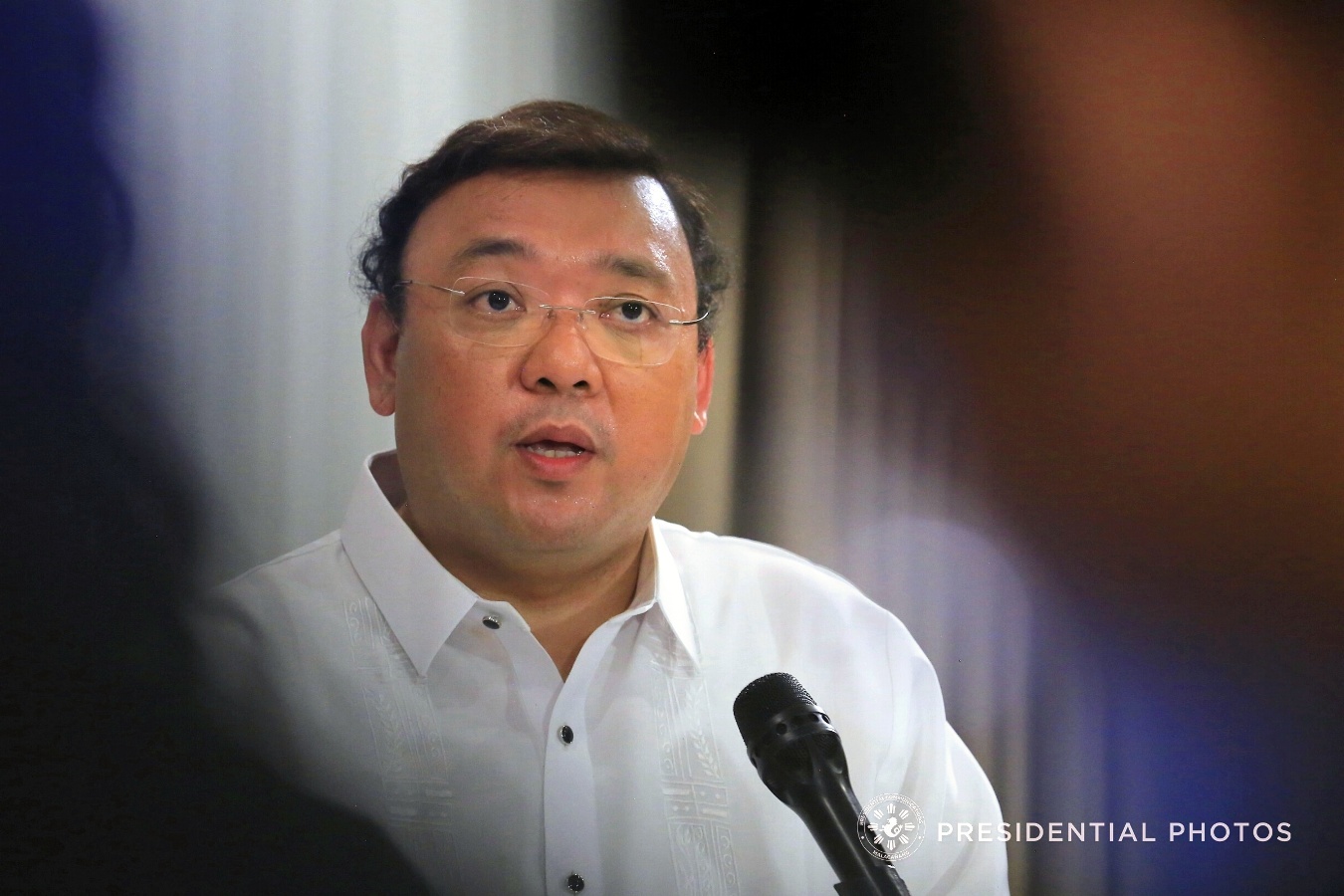News
Drug war study fails to verify each case of killing: Palace

Roque pointed out that the universities simply “accepted” or assumed that the victims were killed because of the drug war but did not verify them one by one. ALBERT ALCAIN/PRESIDENTIAL PHOTO
MANILA — The inter-university study that showed that the poor are the most vulnerable in the Duterte administration’s war on drugs did not verify each case of the so-called drug-related killing, Malacañang said on Tuesday.
Presidential Spokesperson Harry Roque made this remark after a study conducted by top universities — the Ateneo School of Government, De La Salle University, and University of the Philippines Diliman — showed that there were 5,021 drug-related killings from May 10, 2016 to Sept.
29, 2017.
The schools teamed up with the Stabile Center for Investigative Journalism at Columbia University’s Graduate School of Journalism.
The study, which collected data from various media organizations, also showed that most of those killed were poor.
“Ang problema ho dito sa study na ito, siguro hindi ko po talaga ikukuwestyun na talagang mahihirap ang mga napapatay (The problem with this study is, I’m not questioning that it’s the poor getting killed),” Roque said in a radio interview.
“Pero ang kuwestyun dito is: talaga ba silang napatay dahil sa war on drugs. So, iyon po ang hindi naman tiningnan ng study na ito (But my question is: Were they really killed because of the war on drugs? That’s what the study didn’t look into),” he added.
Roque pointed out that the universities simply “accepted” or assumed that the victims were killed because of the drug war but did not verify them one by one.
“Tinanggap lang nila na ito diumano iyong mga napatay, pero ang mas maganda sanang ginawa ng mga dalubhasa ay iniisa-isa (They merely accepted that they were allegedly killed, but it would have been better if experts verified them one by one),” he said.
The Palace spokesperson also noted that the recommendations made by the universities to treat drug addiction as a public health issue is already being undertaken by the government.
“Wala naman pong pagkakaiba doon sa substantive recommendation ng Ateneo doon sa ginagawa ng gobyerno ngayon (There’s nothing different with the substantive recommendation of Ateneo from what the government is doing now),” he said.
Moreover, he said that there was no value added from the study since data were culled from media reports.
“Sa akin po, walang value added pagdating doon sa secondary materials. Eh ang inaasahan ko sa mga dalubhasa ay gagamit sila ng mgaprimary figures na verified nang sa ganoon ay maasahan natin iyang conclusion (To me, there’s no value added when it comes to the secondary materials. I was expecting experts to use primary figures verified so that they could arrive at a conclusion),” Roque said.
“Pero kung ganitong pagka kinuha nila sa media at alam naman natin na ang media minsan eh kukunin din sa another source at hindi doon sa primary source talaga, eh up to question iyong numero mismo (But if it’s like this that they got their source from media and we know that media also gets data from another source and not from the primary source, so the numbers are up to question),” he added.
Roque stressed that there is nothing new with the finding that the poor are most vulnerable in the drug war since shabu is considered “a poor man’s drug.”





















